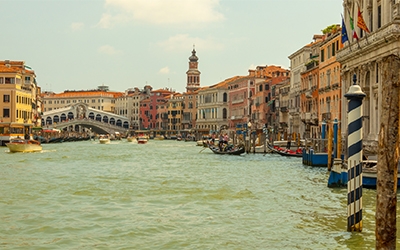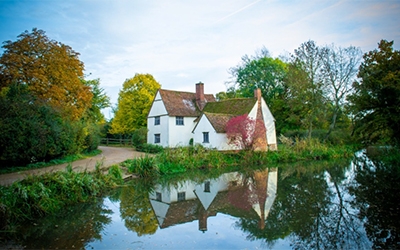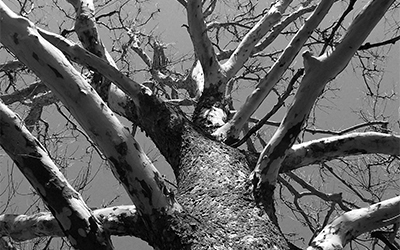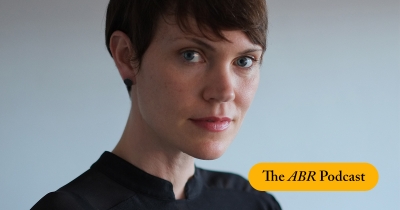Short Stories
‘How many times?’ the voice on the other side shouted. ‘How many fucken times? Will youse ever listen?’ The brick wall between the two change-rooms might have been cardboard.
On this side – the visiting team’s side – the boys sucked on their orange quarters, all ears. Dom Russo, the team manager, screwed up hi ...
The forbearance of those writers who entered the Australian Book Review and Reader’s Feast Short Story Competition has been as exemplary as their commitment to short fiction. I am pleased to be announce the shortlist:
Ian McFarlane: ‘A Balance of Probabilities’
Katarina Mahnic: ‘Flying Recipe’
B.E. Minifie: ‘There Has to be a Resemblance’
Carrie Tiffany: ‘Dr Darnell’s Cure’
Susan Yardley: ‘The End Is Where We Start From’
... (read more)D likes my photograph, the one of me in the 1940s shorts and tight T-shirt, the one I posted to the internet just so that he would see. He watches my story – watches as I make my way through Italian museums, drink Campari, buy a straw hat with a grosgrain band. It is peak summer. It is Italy. It is forty degrees. I have to tell you: I hold four tenets to be true. I still believe in trains that run on time, in the solemn power of dandelion wishes, that ripe heirloom tomatoes are the embodiment of the sensual life, and that you shouldn’t use people. Hold fast, and the compass will point true north.
... (read more)One interpretation of the facts is that Jean-Michel Houvrée produced his most arresting art only after he had died. Born in 1694 in Ariège-sur-Mentouin, a village a few kilometres north of Carcassone, to a moderately prosperous inn-owner and his wife, he was brought up a Catholic but embraced Jansenism in his early twenties. He was educated at the local village school until the age of fourteen: an indifferent scholar in the classroom, he was an avid student of the natural world. He was a good boy, obedient to his parents, kind to his friends, open to the loving grace of God. He had big feet, thick black hair, dark brown eyes, a shy smile. Any free time he had after assisting his father in the inn, he would wander the sun-baked lanes and fields carrying cheese and home-baked bread in his bag, beneath a sky colour-washed fresh each day by his Creator.
... (read more)She’d offered to lay the table (‘Oh no’) or make a salad (‘It’s basically out of a bag’). What she could do, said Amy, was track down That Child, ‘somewhere down the garden. It’s terribly overgrown.’ Borrow my boots if you like, she called at Elizabeth’s departing back. The child, when found, was in a dead apple tree, not dangerously high, but in a controlled dangling.
... (read more)In today's episode, Josephine Rowe – winner of the 2016 ABR Elizabeth Jolley Short Story Prize – reads a new short story, 'Bunker', which appears in the June issue of ABR. Josephine has published three short story collections and a novel called A Loving, Faithful Animal.
... (read more)The quiet had left me. That’s how I put it, but I meant Maree. Most of her cosmetics abandoned in a swollen-stuck bathroom drawer. Hydrators, anti-aging, complexion correction. Potions, I called them, like an old man describing a woman’s things. A few days after she left I tried them on myself, mostly for the smell of her. Of course they did not correct anything, did not make me beautiful, only streaked me to an unlikely shade – Maree’s – darker and more lustrous than my own. I accepted why she’d gone. She’d made a choice, and it was not the wrong choice – her folks old and susceptible, too proud to see it and too stubborn to budge. Bad reception where they are. Have to climb a hill to make a call. But she never climbs the bloody hill. And her emails, when they come, arrive in business hours.
... (read more)It was important that no one took your photograph because you didn’t want to end up a rude picture for bad men to download. We were very sure of that, very certain in our certainty. ‘Noah Potnik has a program,’ Felix and Otis swore, ‘that strips the clothes from any photo to show what the person looks like underneath.’ Noah Potnik had nude pictures of Gal Gadot and Emma Watson and Gigi Hadid, and Felix and Otis told how he’d flashed these images to them with a horrible grin on the bus one afternoon, their eyes growing as big as paper plates because with this power a person could X-ray past the clothes of anyone they wanted, but that meant that even though for some reason Noah Potnik didn’t have any pictures of boys it must be possible that they, too – Felix and Otis – could end up flying around the internet where people would stare at them with their clothes off.
... (read more)O.G. and Tebita sat down by the river. Several minutes of confused communication had concluded, once again, in a revelation of O.G.’s obtuseness. O.G. had asked the name of the river, as it wasn’t yet the Nile. But Tebita kept saying iteru, which O.G. knew meant river. So O.G. pointed again to the water and said ‘But how is this river called? What is the name on it? Which river is this?’ And, despite the frustration, was impressed she could even ask the question three different ways after – was it five? – weeks in Abydos. Time, her friend, her enemy, had become difficult to reckon.
... (read more)A crow-shaped shadow flies across the river. Juna knows that her daughter is coming, so the right thing to do is make her favourite feed. Juna casts a fishing net over the river with her mind. The net drifts onto the surface, slips under the skin, and is swallowed by the water. The net descends through the deep water slowly, resting on the bed. River grass unflattens and pokes up between the spaces. Juna sings a song to attract fish to the area.
... (read more)



